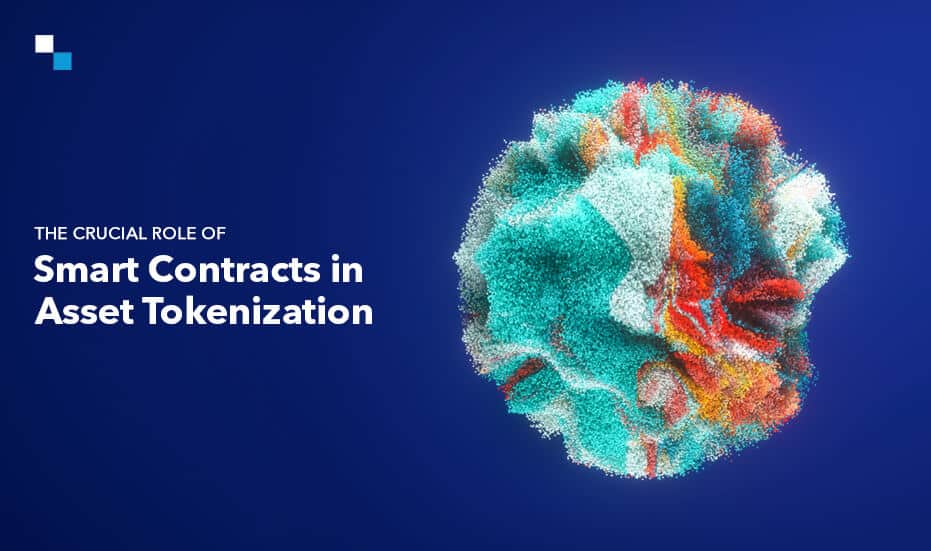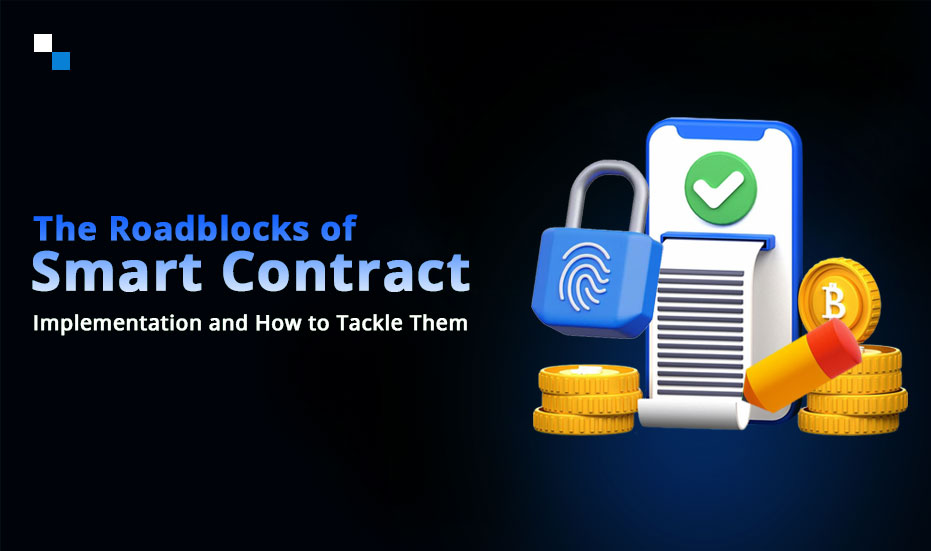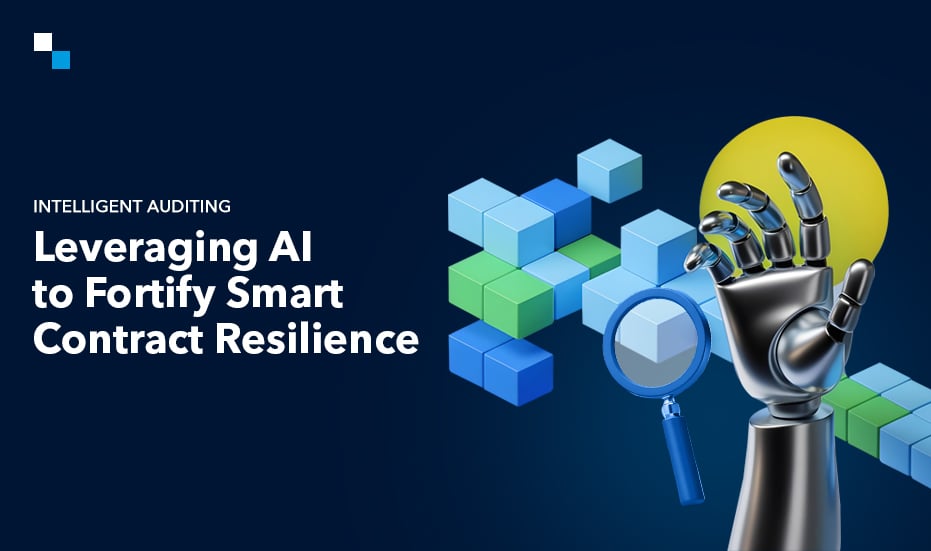
How to Create Your Own Fractional NFT Marketplace in 2024?
February 22, 2024
Your Ultimate Guide To Crypto Exchange Development and Licensing in 2024
February 22, 2024Technological developments in the current digital era have opened the door for creative solutions across a range of businesses. Smart contract development in the realm of asset tokenization is one such innovation that has gained popularity in the financial industry. However, what role do smart contracts play in the tokenization of assets specifically?

What are Smart Contracts?
Smart contracts are self-executing agreements with the terms of the agreement explicitly encoded into lines of code. They accomplish trustworthy transactions instantly and conveniently by leveraging blockchain technology, without the need of involving any middlemen. Smart contracts make transactions safe and trustworthy by carrying out predetermined activities when certain pre-defined terms are met successfully. This simplifies transaction procedures across a range of sectors, including supply chain management, real estate, and banking.
A smart contract development company may leverage the transparency and tamper-proof properties of self-executing agreements to provide businesses a quick and cost-effective way to automate transactions and reduce fraud risk. To fully reap the rewards of smart contracts, maintain regulatory compliance, and protect users’ interests, it is imperative to comprehend the legal implications and associated dangers.
How do Smart Contracts Work?
As discussed, smart contracts are self-executing agreements that have their terms explicitly coded into the code. This allows for automatic transactions to occur when certain criteria are satisfied. They operate on blockchain technology, which increases security and transparency by doing away with the need for middlemen. Consider the following while researching how smart contracts function:
- Smart contracts ensure accuracy and efficiency in executing agreements as they are triggered by predefined rules.
- As they use If-Then logic, it becomes simpler to verify conditions such as dates, times, or completion of tasks and automatically trigger actions.
- Smart contracts are stored on a blockchain, which makes them immutable and tamper-proof, and allows all parties to access to the history of contract.
- Diverse decentralized applications ranging from supply chain management and voting systems to financial services like payments and loans are made possible by them.
- Smart contract development simplifies the transaction process with no involvement of middlemen. It reduces the likelihood of conflicts and increases mutual trust between the parties.
The Role of Smart Contracts in Asset Tokenization
Smart contracts play an important role in asset tokenization by introducing efficiency, transparency, and security. Here’s how:
- Smart contracts enable the automation of contract execution and eliminates the need for intermediaries and reduces hefty transaction costs.
- Fractional ownership of historically illiquid assets is made possible via asset tokenization, which makes investment opportunities more accessible through the use of blockchain technology.
- Smart contracts provide assurance of immutability and transparency of all transactions and build a secure and trustworthy environment for asset tokenization.
- Smart contracts increase market efficiency by releasing liquidity and facilitating quicker and more efficient trading through the tokenization of assets.
- By enabling the 24/7 international trading of assets without the need for complicated procedures or copious amounts of paperwork, the application of smart contracts in asset tokenization also creates new avenues for international investment.
Benefits of Building Smart Contract for Tokenizing Various Types of Assets
Smart contracts in the asset tokenization have revolutionized the way we handle our digital assets. Smart contracts are self-executing contracts with the terms of the agreement between buyer and seller directly mentioned in codes. As such, they bring about a host of benefits that traditional contracts simply cannot match. Let’s delve into the main benefits of using smart contracts in asset tokenization.
Enhanced Security
Smart contracts offer robust security by eliminating reliance on third-party intermediaries. Leveraging the immutable nature of blockchain, transactions become tamper-proof and transparent, minimizing fraud risk and fostering trust among transaction participants.
Increased Efficiency
Through the automation of contract execution, smart contracts eradicate the necessity for manual processing and paperwork. This enhances the efficiency of the entire asset tokenization process, minimizing the likelihood of errors or delays. Consequently, transactions can be carried out with increased speed and effectiveness.
Cost Savings
Smart contract development eliminates the necessity of paying fees to any intermediary and protracted legal proceedings. This results in notable reductions in transaction costs and overhead expenses. Involved parties benefit from cost savings while maintaining a secure and dependable transaction process.
Accessibility
A smart contract development company can help in asset tokenization and make them easily accessible to a wider range of investors. This opens up new opportunities for smaller investors who may not have had access to traditional asset markets. As a result, asset tokenization becomes more inclusive and democratized.
Transparency
Blockchain technology’s transparency guarantees that every transaction conducted via smart contracts is visible to all involved parties. This fosters a heightened level of trust and accountability, as all blockchain activities are verifiable and auditable.
Reduced Disputes
Smart contracts are programmed in such a way that they get executed automatically, based on predefined conditions. It leaves no room for misinterpretation or disputes. Smart contracts help to reduce the likelihood of disagreements between parties by ensuring that all terms of the contract are clear and enforced automatically.
Better Compliance
Smart contracts can be designed to comply with specific regulations and legal requirements. By embedding compliance rules into the code, smart contracts ensure that transactions are carried out in accordance with the law. This reduces the risk of non-compliance and related penalties.
Simplified Asset Management
Tokenization in smart contract allows easier management and tracking of assets. Token ownership offers seamless transferability, division, and consolidation, enhancing asset management flexibility while minimizing administrative complexities.

Smart Contract in Asset Tokenization Example
In asset tokenization, smart contracts play a crucial role in facilitating secure transactions and automating processes. Let’s consider an example to illustrate this concept in action:
- Real Estate Tokenization: Anyone can tokenize real estate property through smart contract development on a blockchain platform.
- Token Creation: Initially, smart contracts are used to create digital tokens that represent shares or ownership of the property.
- Investor Participation: Investors can then purchase these tokens, which enables them to own a fraction of the property without the need for carrying out traditional paperwork and involving intermediaries.
- Automated Transactions: Smart contracts execute predefined conditions automatically, ensuring that when certain criteria are met, such as rental income being generated, dividends are distributed to token holders.
- Transparency and Security: The decentralized nature of blockchain technology ensures transparency in transactions and provides a high level of security, as data is encrypted and immutable.
- Efficiency and Cost-Effectiveness: By removing middlemen and automating processes, smart contracts streamline asset tokenization, reducing costs and minimizing the potential for errors or fraud.
- Regulatory Compliance: Smart contracts can also be programmed to enforce regulatory compliance, such as ensuring that token transfers adhere to legal requirements, adding an extra layer of protection for all parties involved.
Conclusion
In the landscape of modern finance and technology, the role of smart contract development in asset tokenization is of significant importance. Smart contracts offer a secure and automated avenue for asset tokenization, enhancing transparency, efficiency, and accessibility within the digital economy. Leveraging blockchain technology, smart contracts facilitate the fractional ownership of assets, increasing liquidity and divisibility. They also diminish reliance on intermediaries, resulting in reduced transaction costs and a streamlined tokenization process. Furthermore, the self-executing nature of smart contracts ensures trust and security, eliminating the risks associated with fraud and human error. As a transformative force in traditional financial systems, smart contract development stands at the forefront, unlocking novel opportunities for investment and reshaping the future of asset tokenization.
Antier, a reputed smart contract development company can revolutionize the way your assets are digitized, traded, and managed. Our solutions offer increased efficiency, transparency, security, and cost-effectiveness of running businesses across different countries.
Reach new heights in DeFi with our expert solutions and innovative blockchain technology!



